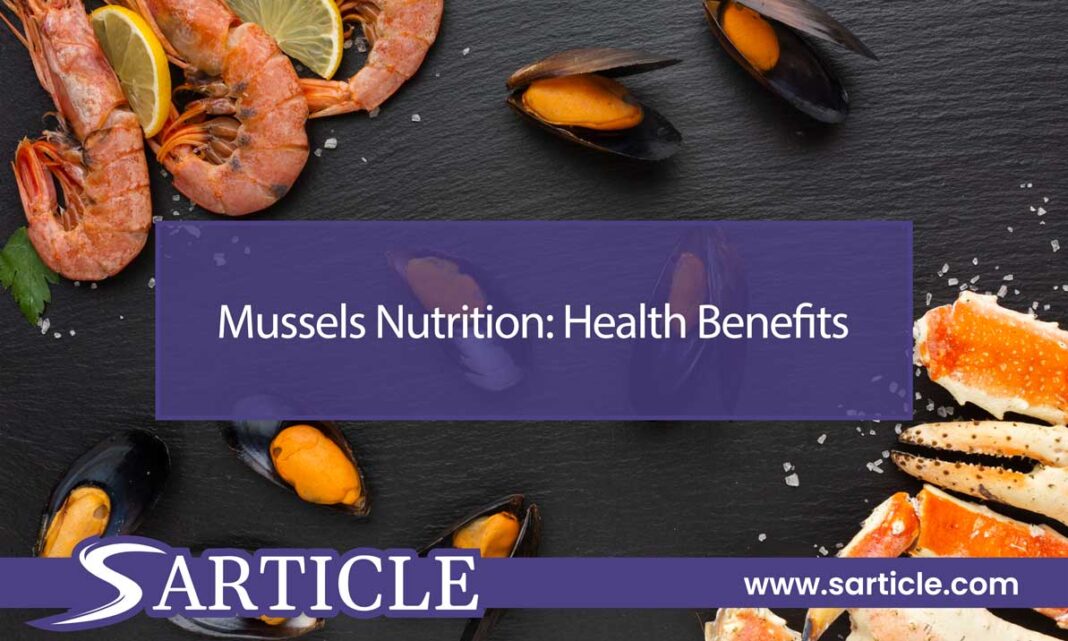In this comprehensive guide, we will explore Mussels nutrition, uncover their health benefits, and shed light on why they deserve a prominent place on your plate.
When it comes to seafood, mussels often take center stage with their delicious taste and versatility in various cuisines. But did you know that mussels are not only a culinary delight but also a powerhouse of nutrition?
The Early Life of Mussels
Mussels, scientifically known as Mytilus edulis, belong to the bivalve mollusk family. These fascinating creatures reside in both freshwater and marine environments worldwide. (https://www.ebsta.com/) Mussels are filter feeders, meaning they extract their nutrients from the surrounding water by filtering out microscopic particles.
Mussels Nutrition-Packed Delicacy
Mussels boast an impressive array of essential nutrients that contribute to their reputation as a nutritional powerhouse. They are an excellent source of lean protein, vitamins, minerals, and omega-3 fatty acids.
Protein Powerhouse
Protein is vital for the growth, repair, and maintenance of body tissues. Mussels offer a remarkable protein content, with approximately 20 grams of protein per 100 grams. This makes them an ideal protein source for individuals following a vegetarian or pescatarian diet.
Learn More: Cookout Nutrition: Delicious BBQ Fare
Rich in Vitamins and Minerals
Mussels are a treasure trove of vitamins and minerals necessary for optimal health. They are particularly abundant in vitamin B12, which plays a crucial role in nerve function and the production of red blood cells. Additionally, mussels contain significant amounts of vitamin C, vitamin E, vitamin K, and several B vitamins, including thiamin, riboflavin, and folate.
In terms of minerals, mussels are an exceptional source of iron, selenium, zinc, and manganese. These minerals contribute to various bodily functions, such as oxygen transport, immune function, and antioxidant defense.
Omega-3 Fatty Acids for Heart Health
One of the standout features of mussels is their high omega-3 fatty acid content. Omega-3 fatty acids, specifically eicosapentaenoic acid (EPA) and docosahexaenoic acid (DHA), are associated with numerous health benefits, particularly for cardiovascular health. These healthy fats help reduce inflammation, lower blood pressure, improve cholesterol levels, and support overall heart function.
Antioxidant and Anti-Inflammatory Properties
Mussels contain an array of antioxidants that help combat oxidative stress and protect against chronic diseases. Antioxidants, such as vitamins C and E, along with minerals like selenium, neutralize harmful free radicals and reduce the risk of cellular damage.
Moreover, mussels possess anti-inflammatory properties attributed to their omega-3 fatty acids, vitamins, and minerals. By reducing inflammation, they may potentially alleviate symptoms of inflammatory conditions such as arthritis and promote overall well-being.
How to Incorporate Mussels into Your Diet
Now that we understand the exceptional nutritional value of mussels, let’s explore some delicious ways to incorporate them into your diet:
Classic Mussels in Broth
One of the most popular ways to enjoy mussels is by cooking them in a flavorful broth. Start by sautéing garlic and onions in olive oil, then add white wine, diced tomatoes, and a touch of herbs like thyme or parsley. Finally, add the mussels and steam until they open. Discard any mussels that do not open during cooking, as they may not be safe to eat.
Mussels in Pasta
For a delightful pasta dish, combine cooked mussels with al dente linguine or spaghetti. Sauté garlic and chili flakes in olive oil, add the cooked mussels, and toss with fresh herbs like basil and a squeeze of lemon juice. Finish with a sprinkle of grated Parmesan cheese for added flavor.
Mussels as Appetizers
Mussels make fantastic appetizers or small plates. Serve them steamed with a zesty dip, such as garlic butter or a tangy aioli. Alternatively, you can top cooked mussels with a breadcrumb and cheese mixture, then broil them until golden brown for a delectable twist.
Mussels truly stand out as a nutritional gem within the realm of seafood. With their abundance of protein, vitamins, minerals, omega-3 fatty acids, and powerful antioxidants, they offer a myriad of health benefits. By incorporating mussels into your diet, you can enjoy a delectable seafood experience while reaping the rewards of their remarkable nutritional profile.
FAQs:
Are mussels safe to eat?
Yes, mussels are safe to eat when properly cooked. Discard any mussels that do not open during cooking, as they may be unsafe to consume.
Can mussels be beneficial for weight loss?
Mussels are a lean source of protein and low in calories, making them a suitable addition to a weight-loss diet. However, it’s essential to consider overall calorie intake and dietary balance.
Are there any potential allergenic risks associated with mussels?
Mussels can cause allergic reactions in individuals with shellfish allergies. If you have known shellfish allergies, it is advisable to avoid mussels and consult with a healthcare professional.
How should mussels be stored before cooking?
Mussels should be stored in the refrigerator in a mesh bag or a bowl covered with a damp cloth. It is best to consume them within a day or two after purchase.
Can mussels be sustainable seafood?
Mussels are considered a sustainable seafood choice as they are filter feeders and have a minimal impact on marine ecosystems. However, it’s crucial to source mussels from reputable suppliers to ensure sustainable farming practices.


